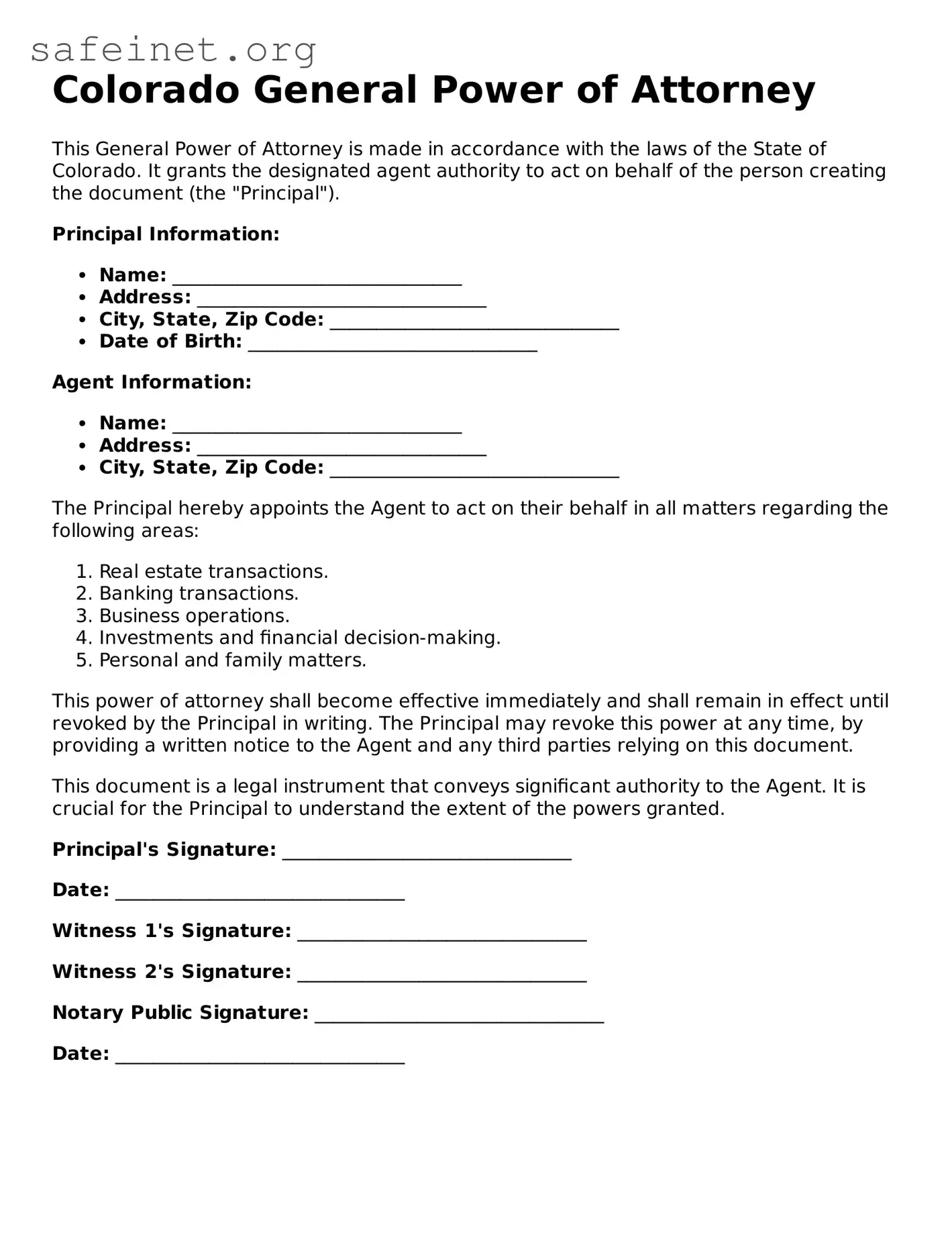What is a Colorado General Power of Attorney?
A Colorado General Power of Attorney is a legal document that allows one person, known as the agent or attorney-in-fact, to act on behalf of another person, referred to as the principal. This authority can cover a range of financial and legal decisions, including managing bank accounts, signing checks, filing taxes, and handling real estate transactions. The document is effective immediately upon signing unless otherwise specified by the principal.
Who should consider using a General Power of Attorney in Colorado?
Individuals who want to ensure that their financial and legal matters are handled by someone they trust should consider creating a General Power of Attorney. This can be particularly beneficial for those who may become incapacitated due to illness or injury, or for individuals who travel frequently and prefer to have someone manage their affairs in their absence.
How do I create a General Power of Attorney in Colorado?
To create a General Power of Attorney in Colorado, the principal must complete the required form, which includes specific information about the agent and the powers being granted. After completing the form, the principal must sign it in the presence of a notary public. While the use of a notary is recommended, witnesses may also be required in some situations to ensure the document's validity.
Can I revoke a General Power of Attorney in Colorado?
Yes, a principal can revoke a General Power of Attorney at any time as long as they are mentally competent. Revocation can be done by creating a written notice that explicitly states the intent to revoke the previous document. It is important to notify the agent and any institutions or individuals that the power has been revoked to avoid any potential confusion.
What happens if the principal becomes incapacitated?
If the principal becomes incapacitated, the General Power of Attorney remains in effect unless it is specifically stated in the document that it should terminate upon incapacity. This means that the agent can continue to act on behalf of the principal, making important financial and legal decisions as needed. This characteristic makes the General Power of Attorney a useful tool for planning for unforeseen circumstances.
Are there any limitations to the powers granted in a General Power of Attorney?
Yes, while a General Power of Attorney grants broad powers, there can be limitations specified by the principal. The principal can choose to exclude certain actions, such as selling real estate or making gifts, from the agent's authority. Additionally, certain actions may require additional legal documents or different types of powers of attorney to be valid. Clarity in the document can help prevent misunderstandings about the scope of authority granted.
